education materials
education materials
Responding to military engagement in schools
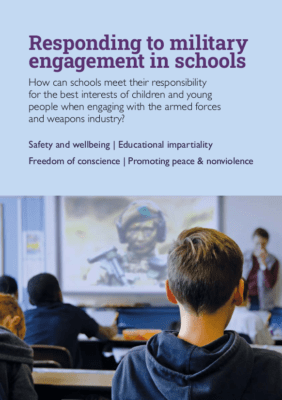
This booklet produced by Quakers in Britain in 2022 asks how can schools meet their responsibility for the best interests of children and young people when engaging with the armed forces and weapons industry? It provides information, resources and ideas for countering military influence in schools.
Animated poem about the military recruitment of young people
A spoken work poem by artist Potent Whisper, animator Neda Ahmadi, and sound designers Torch & Compass on the military recruitment of young people. See more from CRIN on Should the armed forces recruit children under the age of 18? including a comparison to a recent army recruitment advert and a learning resource from the Quakers in Britain peace education team, to encourage critical thinking about armed forces recruitment and its relationship to human rights.
Planning Remembrance Day events in your school
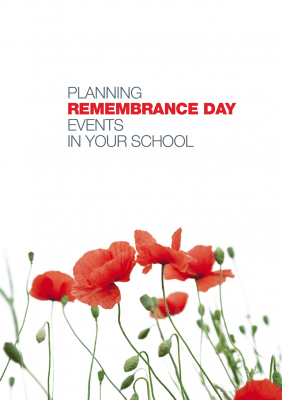
This guidance is based on five-years of research carried out by Oxford Brookes University and Brunel University London. It looks at how school leaders can approach discussing ethical themes related to conflict.
White Poppies for Schools
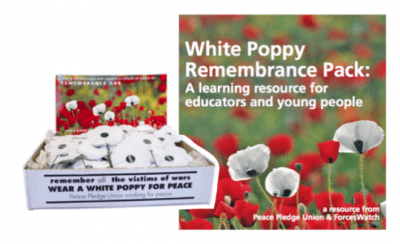
We have teamed up with the Peace Pledge Union to produce a White Poppy Schools Pack, which aims to explore Remembrance in a way that encourages critical thinking, and gives space for marginalised perspectives on war and peace. The learning resource can be read online here, or purchased from the Peace Pledge Union as a bigger pack including white poppies and white poppy leaflets.
Everyday Militarism poster
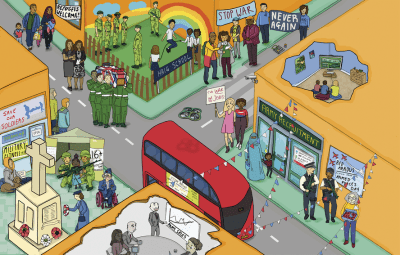
The new tide of militarisation
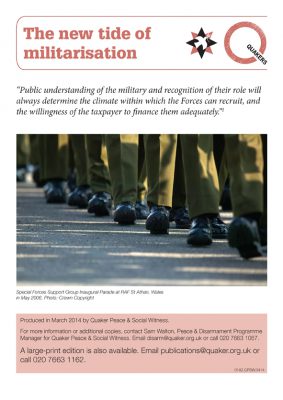
Militarism has existed in the Britain for a long time, but there is a new tide of militarisation that has developed over the last five years. This briefing from Quaker Peace and Social Witness, explores the government strategy to increase public support for the military, in order to raise the willingness of the public to pay for the military, make recruitment easier, and stifle opposition to unpopular wars.
Answering difficult questions about militarism
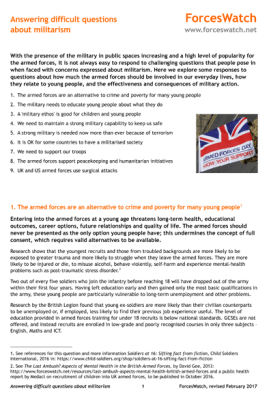
With the presence of the military in public spaces increasing and a high level of popularity for the armed forces, it is not always easy to respond to challenging questions that people pose in when faced with concerns expressed about militarism. In this briefing we explore some responses to questions about how much the armed forces should be involved in our everyday lives, how they relate to young people, and the effectiveness and consequences of military action.
Science for Society

Science4Society Week is a collection of science education activities, co-ordinated by Scientists for Global Responsibility, and designed to inspire young people. It takes place in March each year.
Quakers in Britain

The Quakers work on peace education, as well as other peace issues - carrying it out in schools and promoting it as a necessary part of the curriculum. See here for current Quaker projects, peace education resources and their partner organisations.
Rethinking Remembrance in Schools
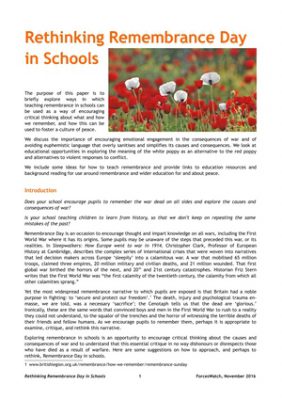
This paper, published by ForcesWatch, explores ways in which teaching remembrance in schools can be used as a way of encouraging critical thinking about what and how we remember, and how this can be used to foster a culture of peace.
